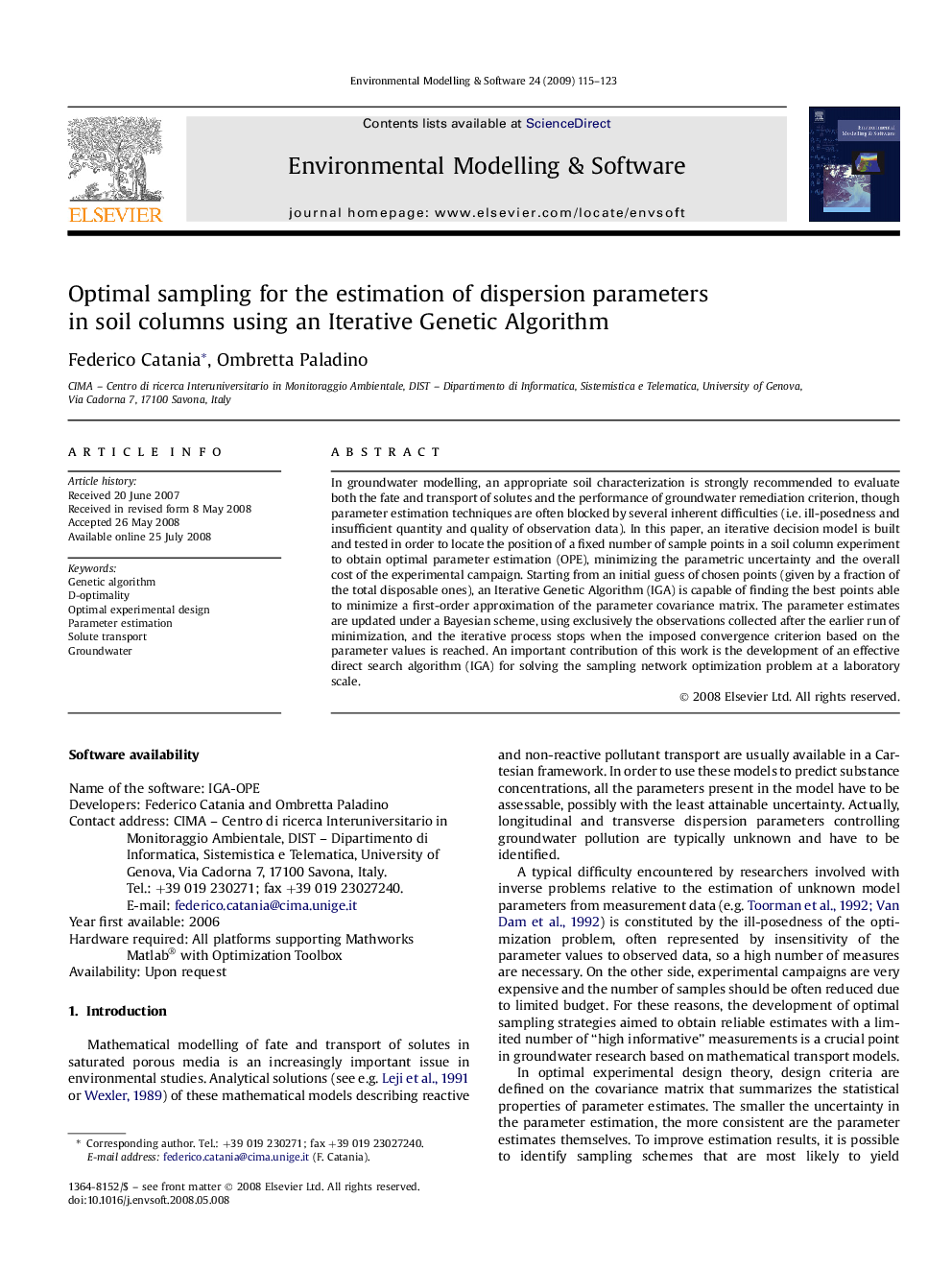| Article ID | Journal | Published Year | Pages | File Type |
|---|---|---|---|---|
| 569111 | Environmental Modelling & Software | 2009 | 9 Pages |
In groundwater modelling, an appropriate soil characterization is strongly recommended to evaluate both the fate and transport of solutes and the performance of groundwater remediation criterion, though parameter estimation techniques are often blocked by several inherent difficulties (i.e. ill-posedness and insufficient quantity and quality of observation data). In this paper, an iterative decision model is built and tested in order to locate the position of a fixed number of sample points in a soil column experiment to obtain optimal parameter estimation (OPE), minimizing the parametric uncertainty and the overall cost of the experimental campaign. Starting from an initial guess of chosen points (given by a fraction of the total disposable ones), an Iterative Genetic Algorithm (IGA) is capable of finding the best points able to minimize a first-order approximation of the parameter covariance matrix. The parameter estimates are updated under a Bayesian scheme, using exclusively the observations collected after the earlier run of minimization, and the iterative process stops when the imposed convergence criterion based on the parameter values is reached. An important contribution of this work is the development of an effective direct search algorithm (IGA) for solving the sampling network optimization problem at a laboratory scale.
